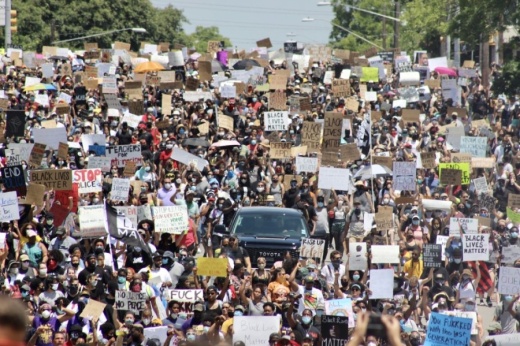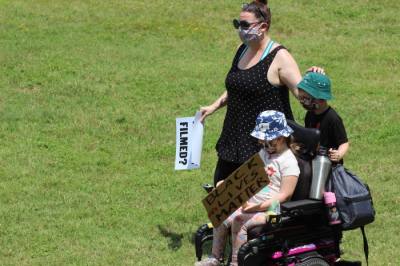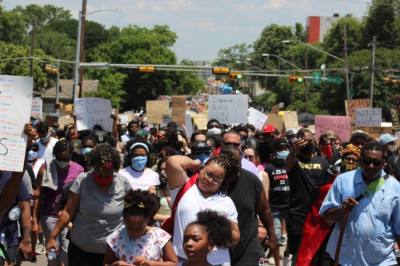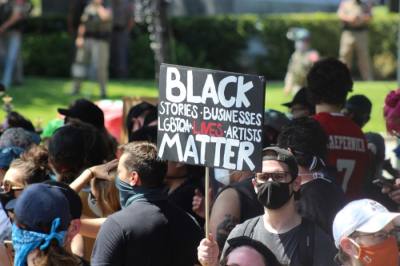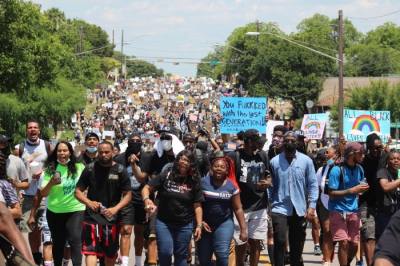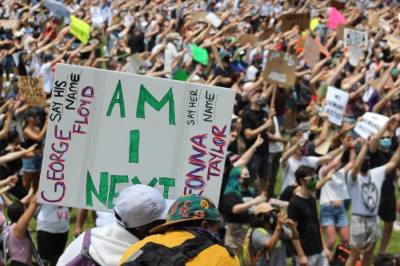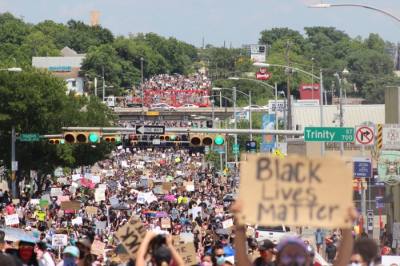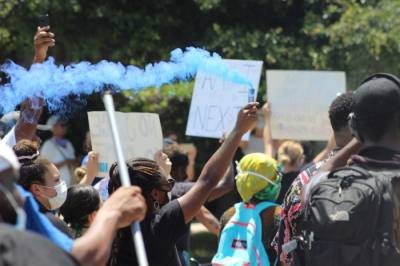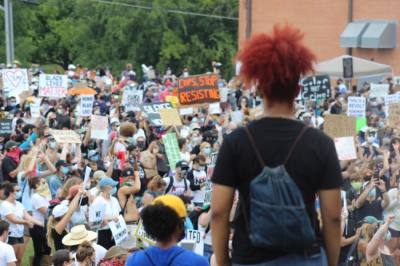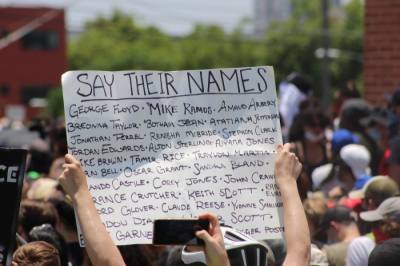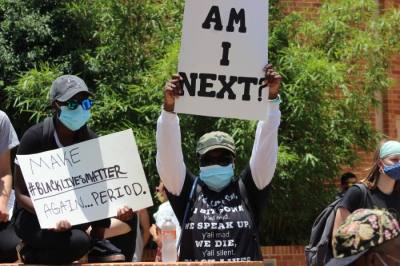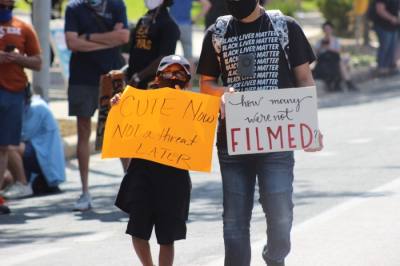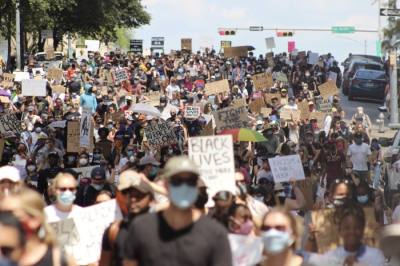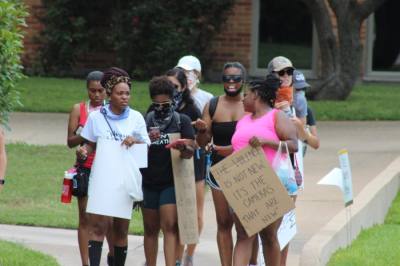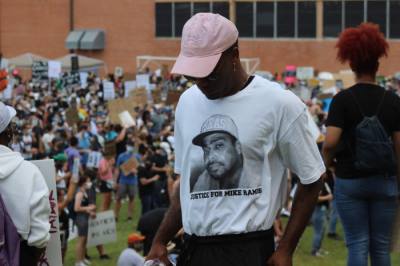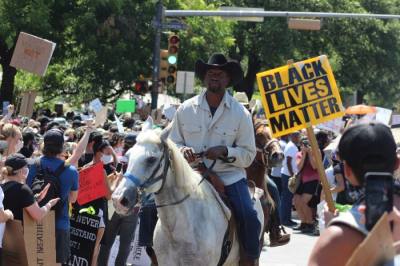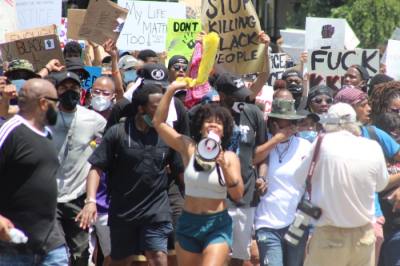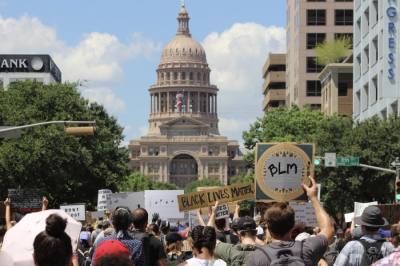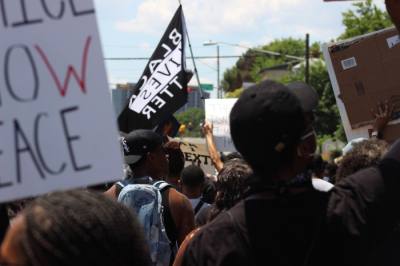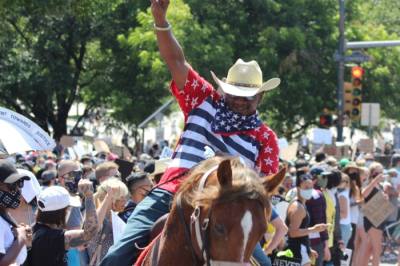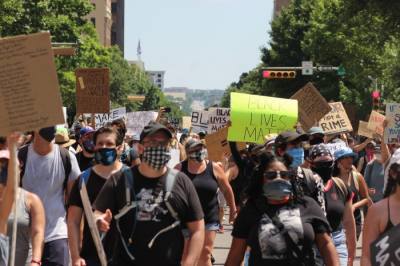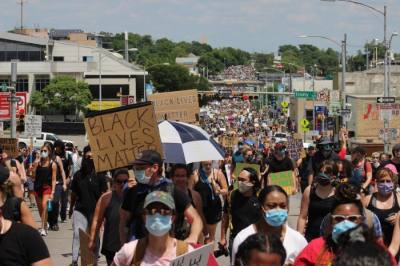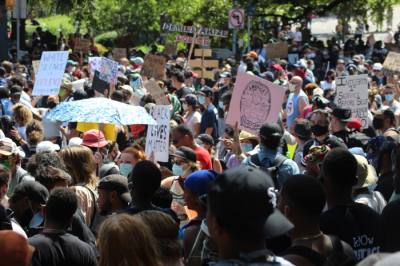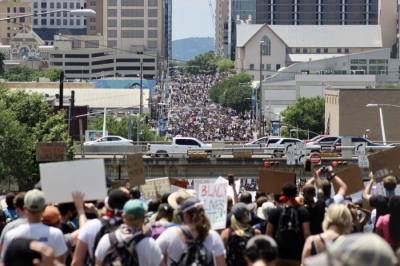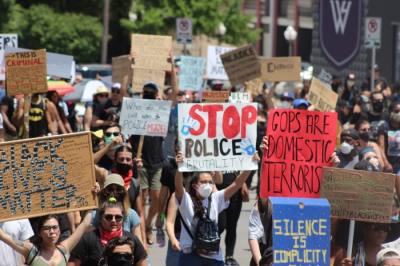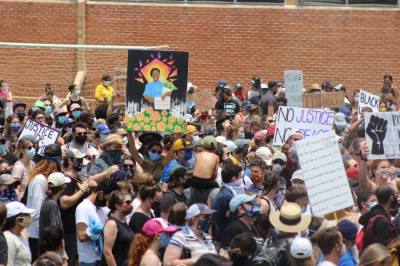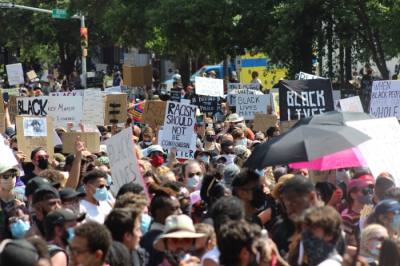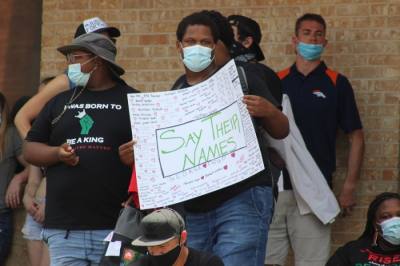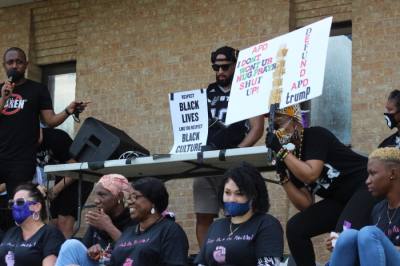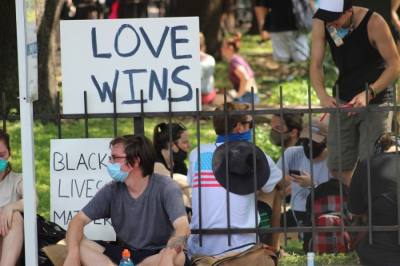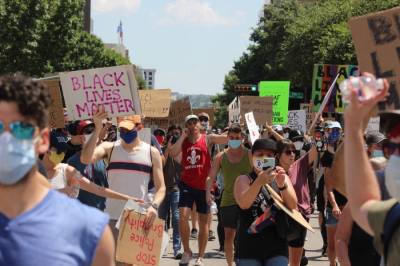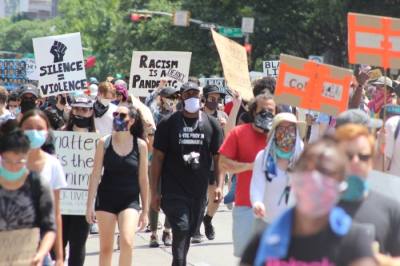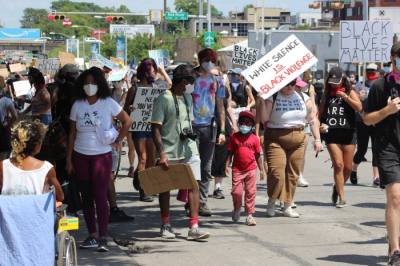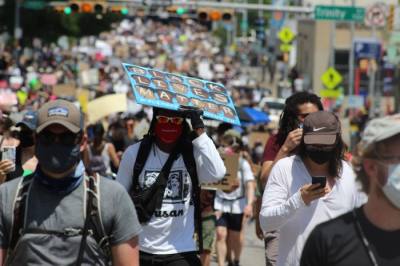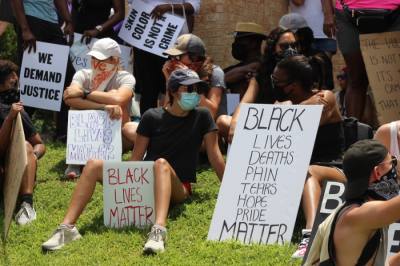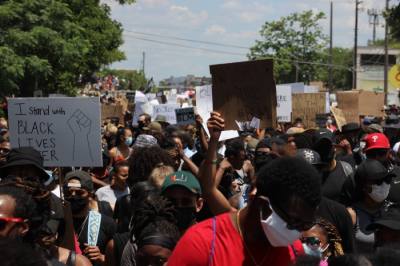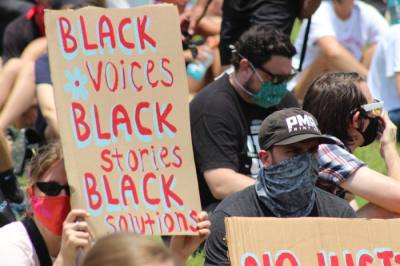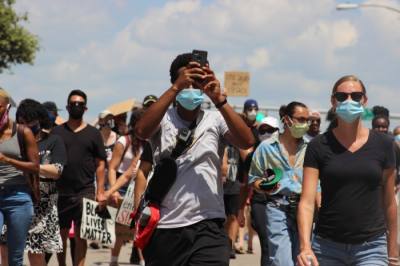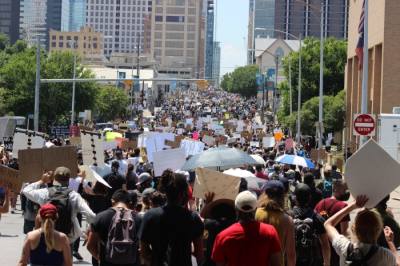Then, with a performance of "Lift Every Voice and Sing," the 1899 song commonly referred to as The Black National Anthem, the atmosphere swung solemn and the mass of people grew focused.
"You are on sacred ground, in a sacred place," university president Colette Pierce Burnette told the crowd. "This university is a visual reminder of the tale of two cities. An institution on the east side of the city that for years has been perceived and treated 'less than.' Ignored. Not invested in. Treated like a stepchild."
Sunday's 1.5-mile march from Huston-Tillotson, down Seventh Street and up Congress Avenue to the Texas Capitol, was spurred by the recent killings of unarmed black people by police, from George Floyd in Minneapolis, to Michael Ramos in Austin. However, Austin Justice Coalition executive director Chas Moore, who led the organization of the event, said the demonstration aimed deeper than that. He said it also focused on the systemic inequity and history of institutional racism faced by the black community and people of color in East Austin that Pierce Burnette spoke about.
Fixing those problems, Moore said, would require white residents to give up their privilege.
"Your hashtags are wonderful. Your yard signs are beautiful. But what are you willing to relinquish to tilt the scales of justice and economic opportunity?" he asked the crowd.
In order to see real change, Pierce Burnette said, people had to make sure the march was not just a moment, but part of a movement.
A historic march
The crowd, which took over much of the west side of the campus and even spilled out across the road and into parking lots, began filing down Seventh Street after the leaders of the event spoke. Forceful chants of "Whose streets? Our streets" and "No justice, no peace," quickly began.
The mass of people soon filled one of the city's main arteries to capacity. Kelsey Vizzard of the local chapter of the Sunrise Movement, said she got word that the front of the march reached the Capitol while several hundred people were still waiting to begin walking back at the university.
The crowd chanted for police reform and said the names of Floyd and Ramos, as well as Louisville, Kentucky resident Breonna Taylor, an unarmed black woman who was shot and killed by police in her home on March 13.
Marchers like Janelle Taylor wanted to find out more about what Austin's communities of color needed.
"Black and brown people come talk to me. What do you need in your neighborhood? Do you need better jobs? Education? Better leadership?" she called to the people who walked by her on campus on their way out to the street, handing out pieces of paper for people to fill out their responses.
Taylor was not there as part of an organization. She said she wanted to learn more about how she could help. She is a teacher in Round Rock and her mom is a teacher at a charter school in Austin. She said after she saw the video of George Floyd's death, this was the best thing she could do to find out exactly what she needed to do in order to help.
"Instead of looking toward a system to help us, that doesn't care about us, why aren't we seeking to find education to help ourselves? That's what we need," Taylor said.
Shortly after the march began heading west on Seventh toward Congress Avenue, Abbie Garcia, an employee at Kebabalicious, stepped outside of the restaurant. In her apron and work uniform, she raised a fist in the air.
Garcia said she was feeling guilty about not being able to participate more in the fight against systemic racism. Her mother has a health condition, Garcia said, and she has felt the need to stay home as much as possible.
"I try to do what I can, but I feel like I haven't been able to do anything—and I've been praying for a way in," she said. "They came to me. All I had to do was come outside."
On the sidewalk, Micaiah Navarette and a group of a few friends handed out free water, snacks and face coverings to the protestors who passed them by. Navarette said the effort came together in the 48 hours before the march, and the friend group gathered $1,000 in donations they put toward supplies.
"We were all stuck at home because of the pandemic, but it's not a good enough reason to sit at home any more," he said.
Before the march began, Brenda Ramos, the mother of Michael Ramos, thanked the crowd for their support and said losing a son is something no mother should have to live with.
"I need your voices to help, and I feel crushed under the weight of my grief," she said. "Thank you for saying his name. Thank you for saying MIke Ramos. Thank you for believing that his life mattered."





